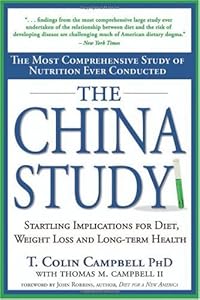Obesity has become a major health hazard all over the world.
As the world’s consumption of meat products increases, so do the rates of
obesity. According to the Center for
Disease Control (CDC) over 2/3 of the population in the United States over the
age of 20 is now considered to be overweight or obese.
 Image by Getty Images via @daylifeMichelle Obama has recently made an effort to publicize
the issue of childhood obesity in America. To her credit, she has made headway in highlighting the importance of increasing our consumption of fruits and vegetables. Unfortunately, with the huge
lobbying power of meat production industries, it would be politically
incorrect for her to point out that meat consumption is a major
contributor to the obesity epidemic.
Image by Getty Images via @daylifeMichelle Obama has recently made an effort to publicize
the issue of childhood obesity in America. To her credit, she has made headway in highlighting the importance of increasing our consumption of fruits and vegetables. Unfortunately, with the huge
lobbying power of meat production industries, it would be politically
incorrect for her to point out that meat consumption is a major
contributor to the obesity epidemic.
In a 2009 study at Johns Hopkins Bloomberg School of Public
Health, those who consumed the highest amount of meat per day had the highest
percent of central obesity (belly fat), and those who consumed the lowest
amount of meat accordingly had the lowest percentage of central obesity. (“Meat
Consumption Is Associated with Obesity and Central Obesity among U.S. Adults”
was written by Youfa Wang and May A. Beydoun.)
Comparing the Body Mass Index (BMI) of meat eaters, vegans and
vegetarians, the meat eaters have the highest BMI and vegans have the lowest
BMI. In the middle were vegetarians who
consumed dairy products and fish eaters (www.medscape.com/viewarticle/702782.)
“People
who switch to a vegan diet typically lose about a pound a week—and this
healthful prescription for weight loss doesn’t require any portion control or
calorie counting,” according to Susan
Levin, M.S., R.D., director of nutrition education for the Physicians Committee
for Responsible Medicine.
Asian countries that have a history of traditional vegetarian diets
have doubled their meat consumption in the recent years, and it is not
surprising that the rates of obesity have correspondingly increased as well. It is
the consumption of higher amounts of fat and protein, and a decrease of
dietary fiber from fruits, vegetables and grains that leads to this phenomenon.












